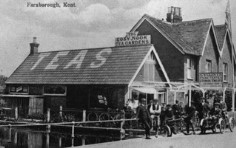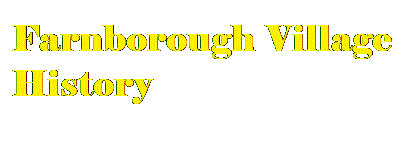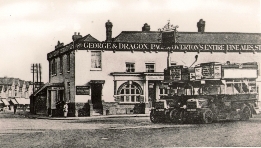


6. THE WAR ENDED ON 15th AUGUST 1945 ... and so did my
childhood. I was 14.
Wartime memories of Farnborough Kent children
by Pat Chivrall nee Williams. November 2004.
Next Chapter Back to Introduction
